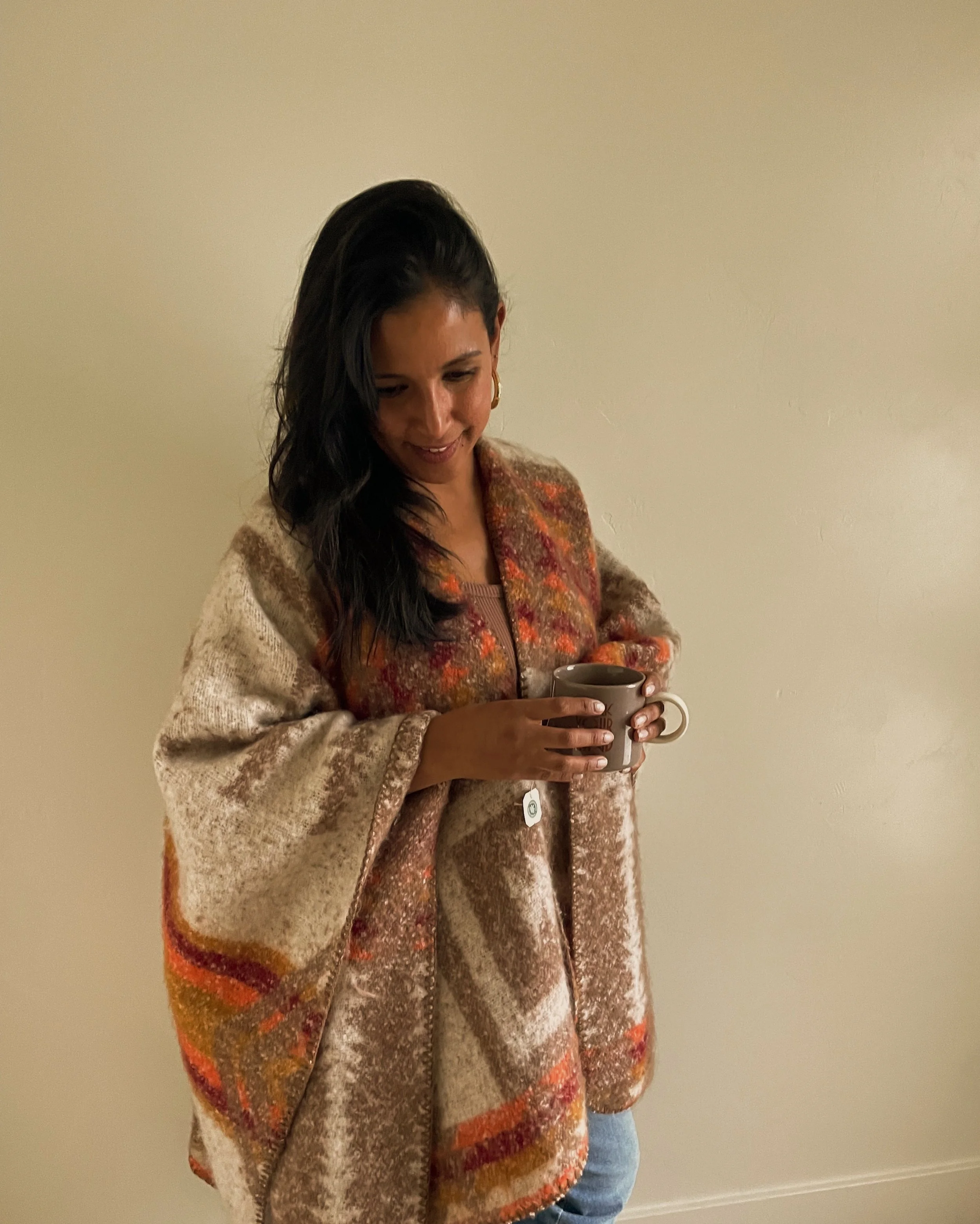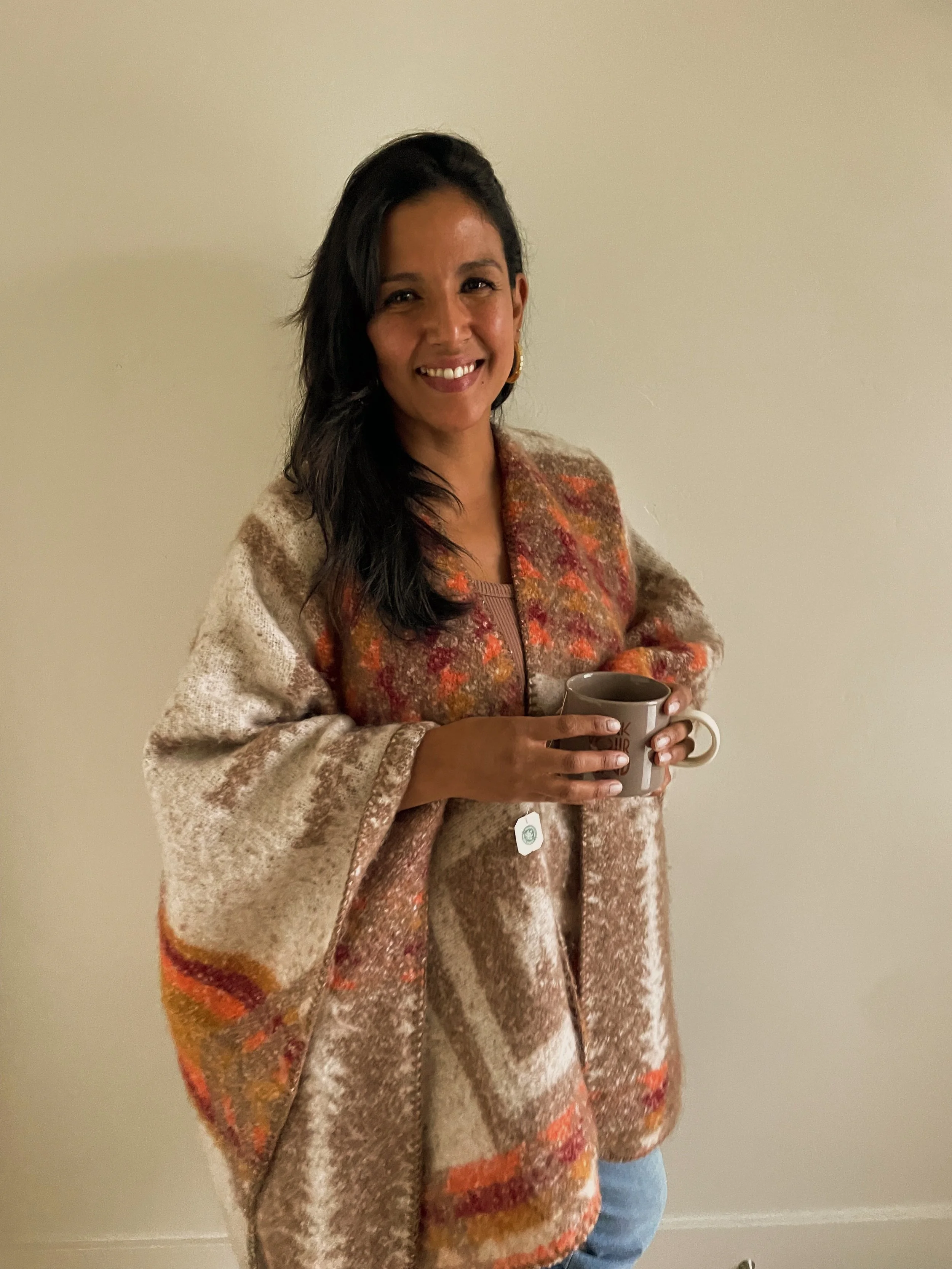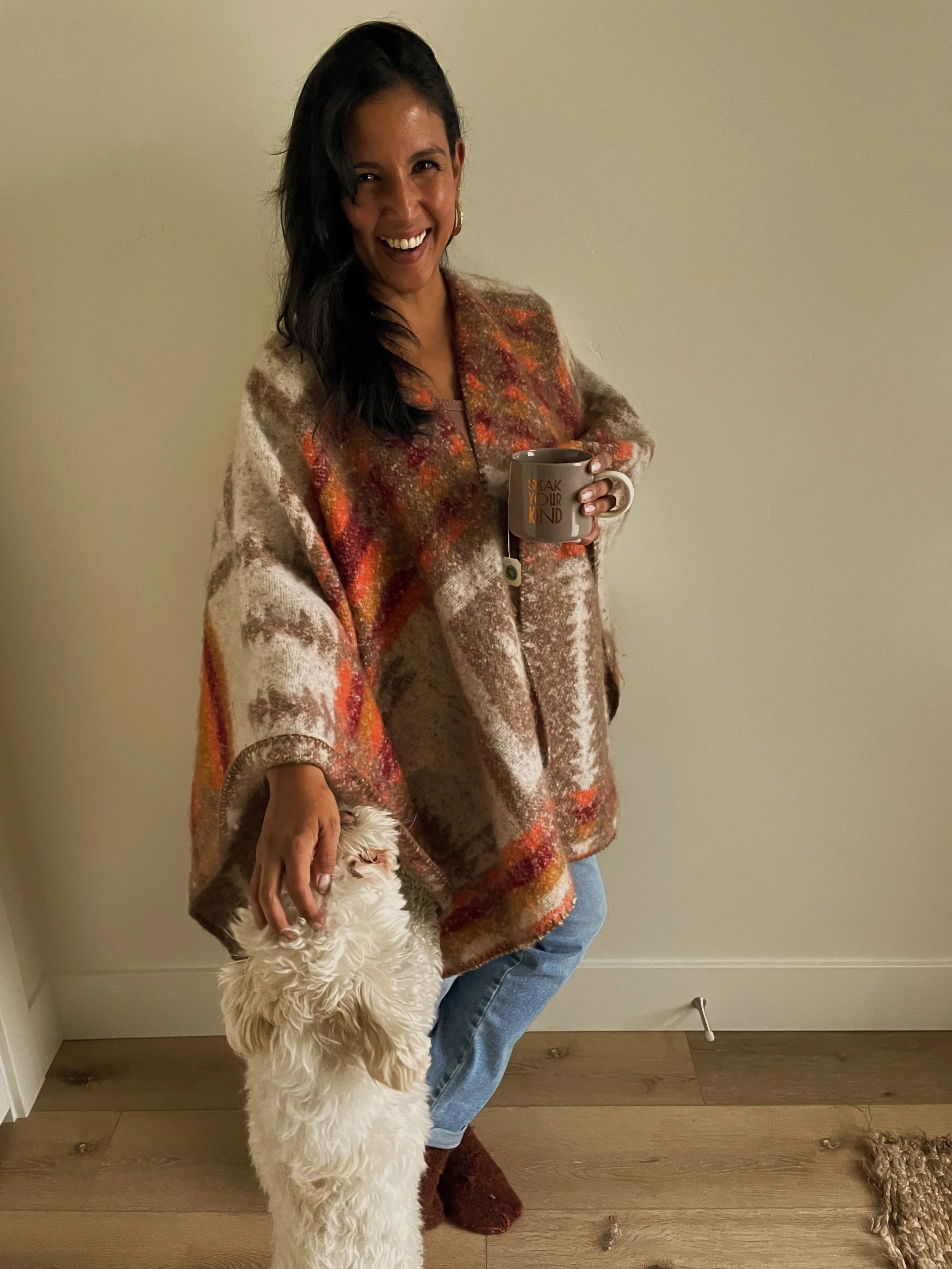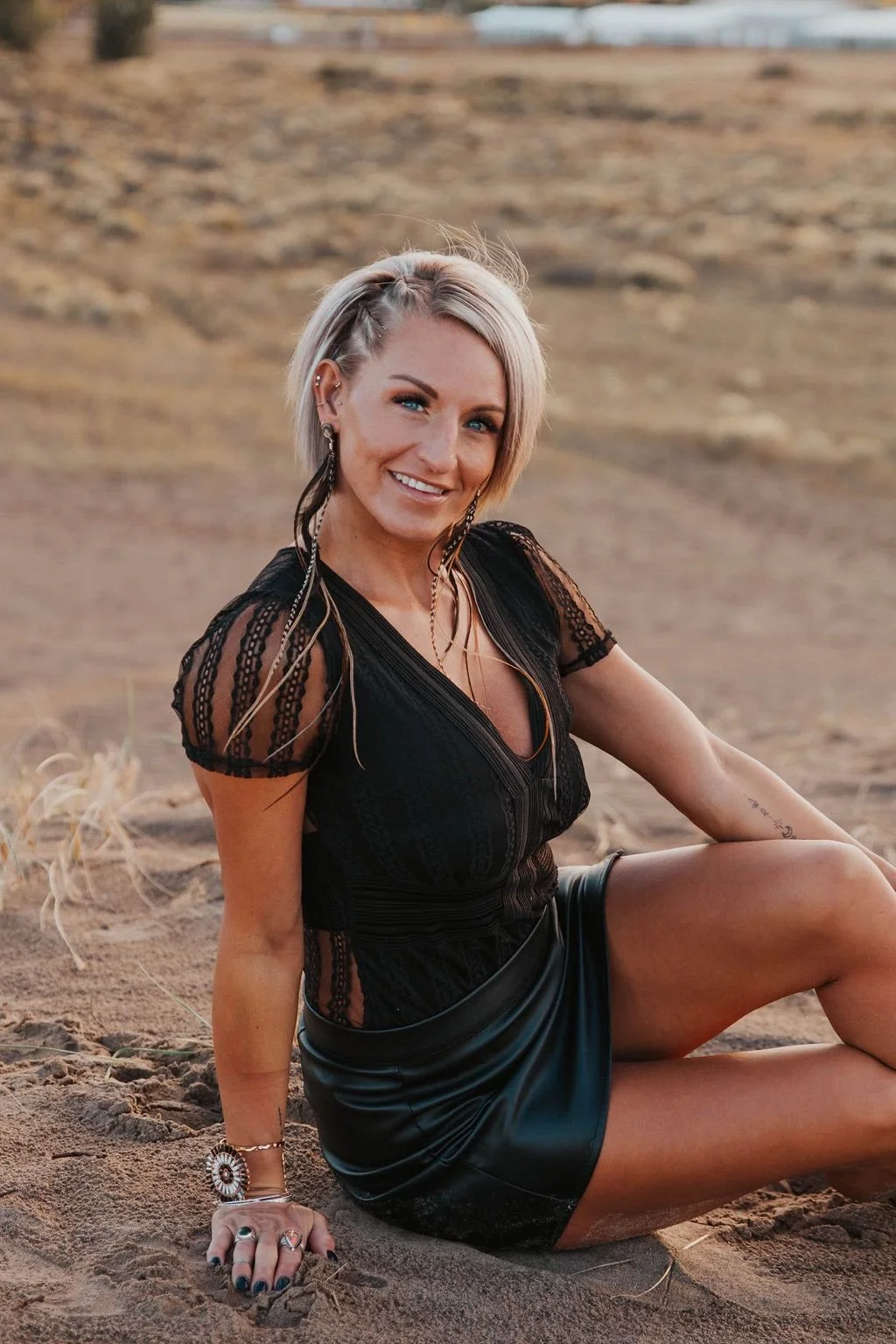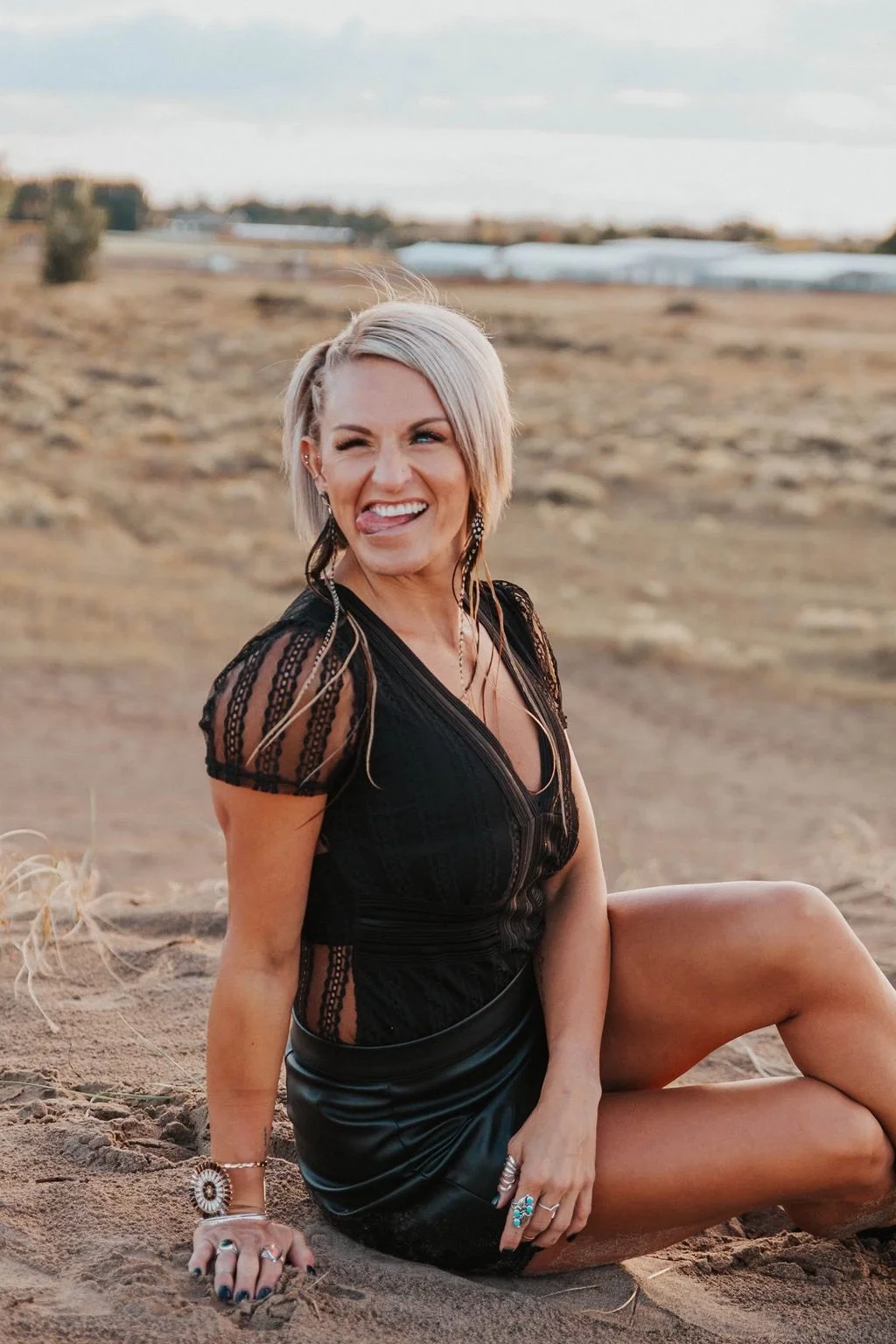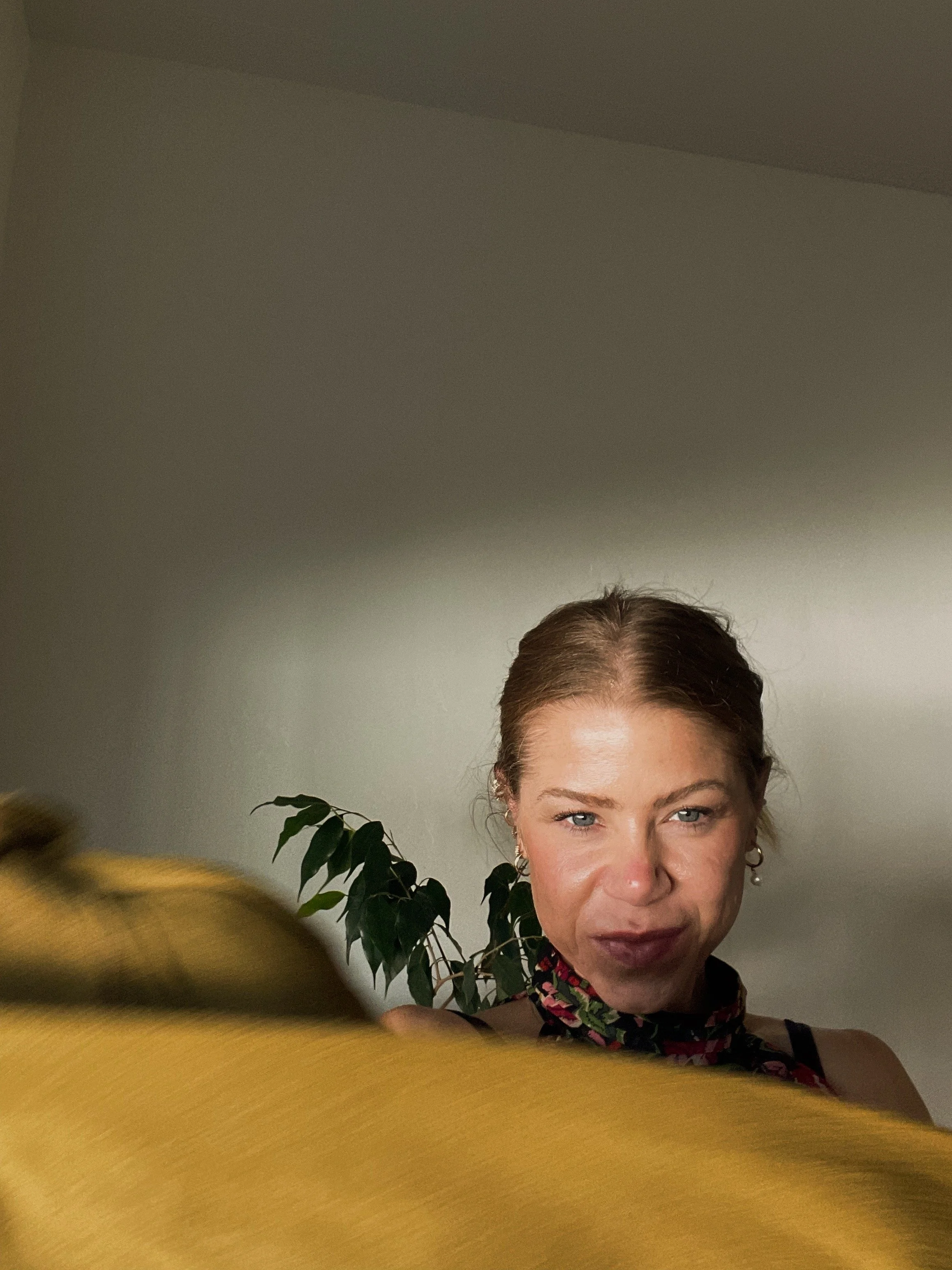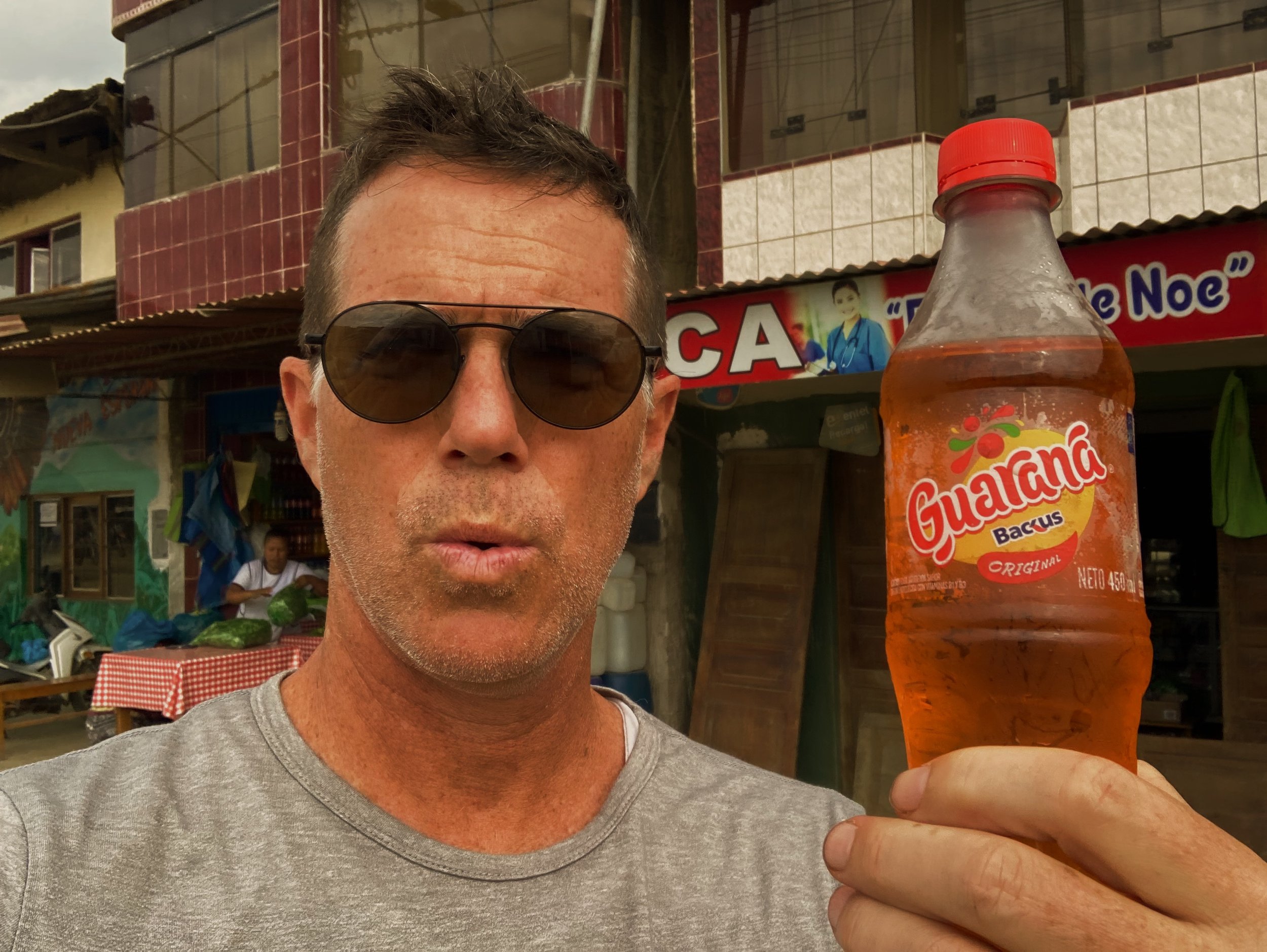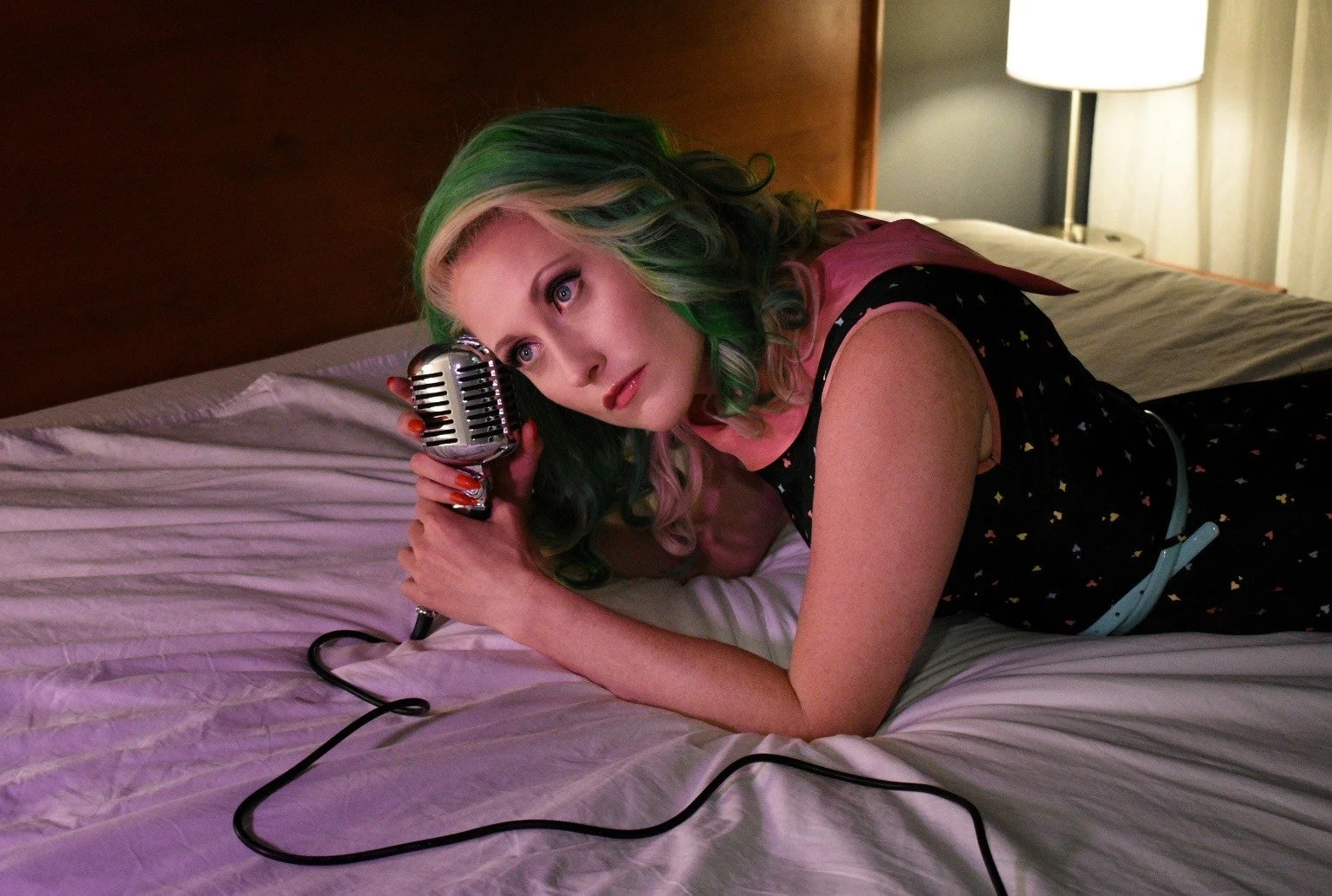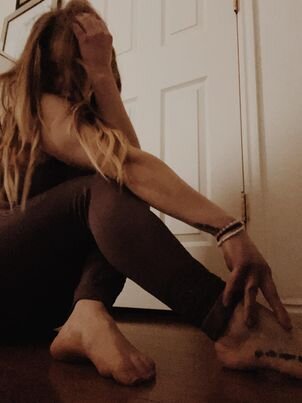Upbeat Synergy with DJ Adrian Smart: Empowering Yourself and Others
Get ready to feel inspired and heartened. In this moving episode, Adrian Smart shares his story for the first time. It’s an incredible story of hope, resilience, grit, love, determination, and humanity. Adrian tells us the personal challenges and tragedies he experienced growing up in Tanzania and South Africa, and how he made his way to the US (it’s a breathtaking story).
If you know/follow Adrian, you see how he infuses positivity into every post/interaction. While his positivity is genuine and authentic, this episode shows a different dimension of Adrian, which makes me appreciate and admire him even more.
This episode gives us what we need to empower ourselves and others. Among the powers we discuss are:
controlling what we can
listening to understand
aligning your energy
respecting yourself and others
feeling seen and heard
seeing and hearing others
helping in direct and indirect ways
living mindfully
acknowledging your good fortune
connecting to yourself and others
The power of you.
Don’t get me wrong, this is a feel-good episode, but it’s so much more than that. It’s life- and soul-affirming.
You can find/support Adrian:
through his DJ Facebook page: LP&H Entertainment and email lphentertainmentbusiness@gmail.com
through his business, Synergy Efficiency, which specializes in upgrading attic and garage insulation: : synergyefficiencyidaho.com; wearesynergy208@gmail.com
You can support the cause to create safe, long-term housing for abuse victims by purchasing a bear at https://babybearsclub.com/
Connect with me on Facebook and Instagram @the_nativist
Politics Schmolitics: Seeking Perspective, Balance, Critical Thinking, and Hope
Having majored in political science and minored in psychology, I am particularly interested in politics and human dynamics. I am also continuously committed to learning, growing, and connecting - as you likely are, too.
In this solo episode, I approach politics through the lens of balance and nuance. I offer insight on:
prioritizing truth over ideology
avoiding common misconceptions
recognizing manipulative tactics
identifying red flags
finding common ground and discussing politics maturely and constructively
evaluating political ideas and policies
sourcing credible information
maintaining perspective
balancing between apathy and burnout
doing your part to improve the world
preserving hope
I hope you finish feeling informed, grounded, discerning, and inspired.
I hope this opens your eyes, mind, and heart.
I hope you feel even more connected to yourself and to others.
Thank you for listening.
Visit https://clearstem.com/?ref=eubxjtws and use code WHITNEYRICHARDS for 15% off!
Cultivating Connection, Community, Partnership, Support, and Intimacy
My vibrant friend Vera Marcinko is this episode’s guest of honor. As a doula, Vera is a birth and postpartum mentor who shares her own postpartum journey, and its effect on her health, her marriage, and her identity. There’s something in this episode for everyone., as we go wide and deep, covering:
+Why community is crucial for humans, especially in pivotal life moments
+What you can do if you feel unsupported as a partner, a parent, a friend - or just a human in general
+How to connect with yourself and others
+How to navigate intimacy as new parents
+What constitutes true intimacy
+What to do when you feel stuck/powerless/alone
+How approaching partnership, parenthood, and life from a place of understanding changes everything
+How to fill your own cup, especially as a caregive
Why you should prioritize patterns over perfection
A very meaningful and helpful episode.
Find Vera on Instagram @thespanglishdoula or @dlnvera
Connect with me on Facebook and Instagram @the_nativist
Visit https://clearstem.com/?ref=eubxjtws and use code WHITNEYRICHARDS for 15% off!
Resources mentioned in the podcast:
+We Can Do Hard Things Podcast: Find Healing In Your Partnership and Balance Inequality in Your Home with Kate Mangino
+The Breathing Cure: Develop New Habits for a Healthier, Happier, and Longer Life
+@theteachermomma on Instagram
Fempowered: Making Your Mess Your Message
In this hard-hitting yet cozy episode, I sit down with the SheEO herself: Sheena Daniels. Sheena is a podcast host, businesswoman, yoga instructor, and female empowerer. She shares tough lessons she’s learned upon getting a divorce and leaving the LDS church. We also get into:
how to connect with yourself and your kids
how to empower yourself and your kids
how to reduce shame and guilt
how to learn to trust yourself
how to use your body as a healing tool
the power of the pause and the necessity of stillness
how your mistakes are your entry points for connection
how to make your mess your message
It’s good. Oh, so good.
Find Sheena on Instagram @shelyfe, and listen to her on Pivot and Pursue, the podcast she hosts with Britney Neibaur
Connect with me on Facebook and Instagram @the_nativist
Visit https://clearstem.com/?ref=eubxjtws and use code WHITNEYRICHARDS for 15% off!
Why Both Giving and Taking Are Crucial for True Connection
I identify a certain blind spot you might have that’s interfering with your friendships, relationships, and social interactions, and how to address it. I explain why giving and taking are equally important.
I suggest what to do if you find yourself imbalanced on either side. I guide you on how to tell if you dominate conversations.
I also share a tip for preserving your battery if you find yourself depleted during social interactions.
It’s a short - but important - episode.
Thanks for listening,
w
Connect with me on Facebook and Instagram @the_nativist
Visit https://clearstem.com/?ref=eubxjtws and use code WHITNEYRICHARDS for 15% off!
Be Interested, Be interesting: Living a Dynamic Life on Your Terms
In this short solo episode, I share one of my top tenets in life. This approach helps you see more, experience more, learn more, contribute more, connect more, and thrive more. It improves your communication, enhances your understanding, revitalizes your relationships, and boosts your happiness. It opens doors, dissolves barriers, illuminates opportunities, and makes life FUN.
Okay okay, I know - those are some big claims. Basically, I talk about how to have a rich life that benefits you and the people around you, no matter your budget, your location, your history, or your social life.
Thank you for being here.
xx
Connect with me on Facebook and Instagram @the_nativist
Sorry/Not Sorry: How to Apologize When You're Sorry, What to Say When You're Not
Are you sorry? Should you be sorry? Do you apologize excessively? Are you unsure of how to connect with someone during a disagreement/misunderstanding (personal or professional)?
In this episode I diverge from all the apology guidance I’ve seen, and specify where I differ. I reveal a hot take (you may agree, you may not) on what not to apologize for, and what actually weakens our apologies. I clarify what an apology is and is not, and outline 7 clear steps to apologize effectively. I identify our true objective with apologies, and advise on how to frame it so both sides feel fulfilled. I highlight common landmines to sidestep when apologizing, and uncomfortable truths that just may transform your approach, relationships - even life (big claim, I know!).
I also share formulas for what to say when you don’t think you even did anything wrong, but you still care about the person/relationship - personal or professional.
Connect with me on Facebook and Instagram @the_nativist
Thank you for being here. xx
[How] Does Kindness Fit Into Politics?
You know those conversations that leave you feeling connected and inspired? This is one of those.
Dr. Nathan Richardson (no relation), Ph.D., Associate Dean for Undergraduate Studies and Department Chair at the University of Texas at San Antonio, joins me to discuss some pretty key topics: the role of kindness and emotions in politics; the power of curiosity in relationships and critical thinking; and the futility of polarization.
We address whether or not being centrist means you lack strong opinions, and if being open minded means you lack bravery or conviction.
Humans first. Labels second. Kindness always.
Find me on Facebook and Instagram: @the_nativist
When Preparation Meets Opportunity
Jessica E. Jones backstage at the Grammys
This episode has major star power. We’re graced with the presence of Jessica E. Jones, aka IVYWILD: Grammy winner, multi-faceted singer, childhood friend, and light bringer. Possibly most important? She performed for RBG herself. What a claim to fame.
Not only does she have the speaking voice of a Disney princess, but she’s an exceptionally articulate, driven, talented, lovely person. In this episode, we highlight how talent may get you in the race, but hard work, tenacity, and interpersonal skills can carry you across the finish line.
Jessica shares how she proceeded past resistance that may have deterred others, but set her up for success beyond her wildest dreams. We discuss resilience, grit, humility, reinvention, vulnerability, and CONNECTION - to self, to passion, and to others.
Highly inspirational, highly empowering.
It’s a showstopper. Just like her.
And speaking of reinvention, she’s branching out beyond classical music. Listen to her latest music she just dropped (and will continue dropping) on all of the major streaming platforms.
Find her on:
Website: www.jessicaejones.com (watch her performances, etc)
Instagram: @jessopranojones / @therealivywild
Facebook: @Ivywild Fanpage
Twitter: @therealivywild
She’s also on TikTok
IVYWILD - Image by Eric J. Keller / @soulcatcherstudio
Jessica E. Jones singing Musetta in a production of La bohéme
IVYWILD - Image by Eric J. Keller / @soulcatcherstudio
Go.Connect.Win.
I’ve said it before and I’ll say it again: connection is key. It’s why I constantly pose the questions I do: on here, on social media, in person. Even my Would You Rather Wednesday questions (I post weekly on my Instagram and Facebook stories) have purpose. Sure, part of it is just to have fun, but the larger part is to connect you to yourself. To deepen your awareness of yourself. To assess and realize your views, to facilitate your familiarity with your fears, your values, your hopes, your possible blind spots, your biases, your…everything that makes you you.
We’ve heard it before: changing the world starts within, with us individually.
In this episode, I talk about how connecting first to ourselves, and then to others:
heightens our happiness and sense of meaning and fulfillment
strengthens our relationships
nurtures our understanding of self and others
lengthens our lives (it’s science, baby)
clears the layers blocking connection to others
lessens divides
facilitates solutions
informs choices
improves, you know…EVERYTHING
I offer questions to ask yourself to gauge how connected you are to yourself. I give guidance on how to [further] connect to yourself, so you can show up authentically, as well as suggestions on how to connect to others. I get personal about times I’ve felt disconnected and how that’s impacted my life and relationship.
So instead of go fight win, the new slogan is GO CONNECT WIN.
Find me on Instagram @the_nativist
Love you. Mean it.
-w-
The Depths of Despair
Light and love and…despair.
Despair. I sure as hell have felt it (I don’t say that glibly - I mean it). Chances are you’ve also felt it (to whatever degree). If you haven’t (yet), you likely know someone who has/is feeling it.
It’s part of the human experience, so let’s respect it, and let’s talk about it: for ourselves and for others.
If you’re seeking a message of hope, this is for Y O U. I had no idea what to speak on today, so I said a quick prayer for insight on what message was needed. I took a couple of deep breaths and “despair” floated through, immediately and clearly.
This initially threw me off, because it doesn’t resonate with my current experience. However, like I said - I’ve been there. And like almost all of my content, I don’t usually share what’s reflective of my current situation - I let my intuition guide me to what’s resonant for yours. And it’s always delivered.
In this episode, I open up and tell you my relationship with despair, and how despair has shown up in my life. I also offer a tried-and-true, CONCRETE action you can take when feeling lost/frustrated/hopeless/defeated/untethered - or just “off.” Works [for me] every.single.time.
I identify why I started The Nativist, and how that relates to you.
Thank you for showing up and doing what it takes - for yourself, and for those around us.
-w-
Taking Accountability and Regulating Our Emotions
This post (and it’s corresponding podcast episode) is per request - and is also actually a specific topic I’ve really wanted to tackle.
Today we’re talking about taking accountability for our actions, and for regulating our emotions.
And as you’ll soon see, there is so.much. to cover here. It’s good stuff, so let’s dive in.
Below, you’ll find a transcription to this episode, so you have the option to read/listen!
You might’ve heard it’s not what hand we’re dealt - it’s what we do with it. We’re not responsible for the initial hand we’re dealt, but we are responsible for how we play it. It’s on us to do something with it. (This right here is a whole other conversation about privilege, drive, luck, agency vs. destiny, etc - but we’ll stay on the surface here.)
It’s easier to blame than it is to take accountability and do the work. And sure, there are legitimate sources of blame, and legitimate challenges (trauma, etc) we’ve experienced that have caused our situation. This doesn’t discount those. Those should be acknowledged and emotionally/physically/psychologically processed, etc. Also, this is pretty nuanced and not always as simple as just willing your way through something. but at the end of the day, still, to truly heal and move forward is up to us. And sometimes (and often) moving forward comes through seeking/accepting the help and resources we need, at least to give us a solid footing. While seeking and receiving may seem passive, and may seem like offloading the responsibility - that’s just not so. They’re active approaches to healing and resolution. We can be surrounded by the best resources and help in the world, but unless we let it in - it’s useless. and the letting it in is entirely up to us.
Let’s tilt this to a slightly different angle. Let’s talk about when people do us dirty, or create the problem. I just got done with my addiction series. Part of this included the perspectives of wives of addicts. Far and away, the most effective and powerful approach and resolving factor were the wives attending to their side of the street. Did they cause the issue? No (though this can get nuanced in many cases, as there are multiple contributing factors in situations involving addiction). But what/whom we’re talking about here, no - the wives were victims here, so to speak. Are they justified in getting angry and blaming their spouse? Sure, absolutely. And it’s important to feel your feelings and express them as necessary, and to not try to good vibe your way out of it, thereby repressing emotions. All emotions serve a purpose and have value, and repressing them only delays (and often magnifies and worsens) their expression. What we resist persists. They’ll come out eventually - usually at a greater magnitude and worse moment. But these wives credit their survival and current mental wellness with working on themselves: seeking therapy, turning inward, etc. They reflected on their own issues, and how those issues were impacting the current situation, and their reactions to the current situation.
For one of the wives, this meant she ended up taking her baby and leaving her husband (which took remarkable strength and courage, considering how young she was and what little she had). Now, she’s healthy, happy, and newly married. She took ownership of herself and her situation. Often, these tough times are gifts because they reveal what isn’t working, and (sometimes forcefully) nudge us into facing and handling that. One of the wives stayed with her husband, and he credits her individual self work for his sobriety. He told me his wife’s “working on herself” was the best thing she could have done because I noticed and wanted to be better as well, which was a huge factor [in] why. I tried to give up alcohol many times before, and when she was finally healed enough to leave, I became strong enough to quit.”
And that’s important to note too: Our actions have ripple effects. We have the power to inspire and uplift others. When we take care of ourselves, that radiates to those around us, and affects the world. When we rise, we can take others with us. Not that that should necessarily be our reason why, but it’s a beautiful secondary motive.
Now let’s talk about when someone says/does something that pisses us off. Bums us out. Triggers us in any way. We often hear (and might even have said): “You made me so mad.” “You hurt my feelings.” “You made me ____ (fill in the blank).” In reality…they’re the stimuli - and how we react to that stimulus is ultimately up to us. As in any scientific experiment, the stimulus is different from the reaction. Different forces. Different entities. And so it is here. Our reaction is and should be separate from what stimulated it.
You might’ve heard the quote by US First Lady Eleanor Roosevelt, “No one can make you feel inferior without your consent.” To give more context to this, Eleanor was responding to reporters’ questions regarding an awkward event in 1935. The Secretary of Labor in the Roosevelt administration was invited to speak at the University of California, Berkeley on the Charter Day of the school. The customary host of the event was unhappy because she felt the chosen speaker should not have been a political figure. She refused to serve as host, and several newspaper commentators deemed her action as a rebuff and an insult. Eleanor was asked at a White House press conference whether the Secretary had been snubbed. “A snub” defined the first lady, “is the effort of a person who feels superior to make someone else feel inferior. To do so, he has to find someone who can be made to feel inferior.”
Another analogy that comes to mind for me is the stimulus (the word/action) is the seed and we are the soil. Whether that soil is fertile (for offense, reactivity, etc) or infertile (repellant to offense) is up to us. And there are quite a few contributing factors to our soil’s fertility, or lack thereof. A reaction is not predetermined and is not automatic. There is space between the stimulus and the reaction. Within that space, power is transferred from the stimulator to the receptor. In the space, we as the receiver get to determine (however consciously and intentionally is up to us) our response.
Here’s where it gets tricky: sometimes that response is hijacked by our subconscious. Our fears and insecurities override our logic, our reasoning, our values, our best intentions. Perhaps our unhealed trauma wounds are triggered, and those are POWERFUL, especially if incurred during our formative years in childhood. We largely and often can’t control if/when we experience trauma, to whatever degree it is. I am in no way victim blaming here - ABSOLUTELY NOT. But for us to extricate ourselves from its chains that strive to control our lives - we must first recognize, and then own it. And this comes through shadow work. Through introspection. Through facing ourselves. Through digging in and getting honest. This process is typically helped by professionals, and trusted loved ones (especially if the trauma is significant). They can illuminate our blind spots, maintain objectivity, and maintain necessary and beneficial objective distance. Even with their help, though, we’re still responsible for doing the work.
As you’ve likely figured out by now, what happens in our formative years affects us today. One of the best ways to get to know someone is to ask them about their childhood. I personally had a fantastic childhood with wonderful, loving, involved parents. However, like virtually everybody else, I still have my stuff. I still have triggers and hangups I’ve had to work through. It’s not always necessarily a reflection of the efficacy and love of your caregivers. None of us make it through life without some wounds. Sometimes, they’re just surface scratches, merely getting our brief attention. Sometimes, they’re bone deep, and if we don’t properly treat them, they worsen and become infected, and that infection spreads, affecting what’s nearby.
For me personally, I would often feel unseen and unheard. As part of this, I also outsourced my validation, and was very reactive. Reactivity is a sign of poor self-emotional regulation. If our moods and our actions and our words depend upon people/situations outside of us, we’ve ceded our power. We’ve ceded our calm and our happiness. We’ve ceded our stability. Only when we can practice that pause, to grant us space between what happened, and how we will handle what happened, will we be empowered. When we respond, rather than react, we feel better and do better. Part of this is recognizing the separation of the stimuli, our thoughts, and our actual core self. If we maintain this distance, we can ascertain when our fears are trying to hijack, when our insecurities are trying to cloud. Otherwise, we’re tossed around by the ever-changing winds, at the mercy of situations and people.
I can tell you from personal experience what a freeing feeling it is to reclaim your power and maintain that calm in the storm. It feels better for you, it feels better for others. Our actions have ripple effects. We don’t live in a vacuum. So you can imagine the compound effect of reactives interacting with other reactives. No wonder we have the division and discord in our world: in relationships, in communities, in business, in politics, in friendships, in religion. We can be powerful catalysts for change, on a micro and macro level, simply by learning to regulate our emotions. Defusing situations by remaining grounded and aware.
Self awareness is key, and not everyone is fully self aware. We’re all at different parts of our journey, to put it euphemistically. In a recent relationship, I saw firsthand - from the other side - how destructive poor emotional self-regulation can be.
A little bit of a back story. Codependency can manifest in various ways. I was codependent in the sense I was a “fixer” and derived my sense of value and worth from fixing, from accommodating, and from caretaking. This is good to an extent, but not in excess, and not to the point of self abandonment. Neither wins when only one set of needs/wants is being met. In a way, I was using that “fixing” and self-denying to regulate my emotions: to feel needed, to feel valuable, to feel desirable, to feel in control, to feel indispensable.
On the other side was my boyfriend, who was codependent in the sense he wholly depended upon externalities to determine his mood, sense of self worth, and identity. I know why he was the way he was (family dynamics in the formative years for the win). I empathize and feel for him. Even so, it was tough to experience. For BOTH of us. Frustration abounded on both sides.
On my side, I’d feel enormous pressure to accommodate his insatiable need for validation. A simple compliment wasn’t enough. Nope. Each one needed to be multi-sentenced, deep, fresh, nuanced, and heavy-hitting. Every single one. Multiply this by 15 or so - A DAY. It was exhausting - which is ironic, because genuine, heartfelt, customized acknowledgements and compliments are my thing. But this just felt forced, and pressured, and required. Don’t get me wrong, he gave what he expected. He could be the king of compliments. But it all felt so heavy. For someone who loves swimming in the depths, pretty soon I was gasping for air.
If we didn’t have the exact same opinion, he’d take it as a personal attack. A condemnation of his taste, his character, his judgment. He wouldn’t directly communicate this - because he needed external harmony for his internal peace. So nothing ever truly got resolved. He’d say one thing and mean another. Not because he was trying to deceive or lie or put one over on me. He was trying to fulfill his idea of what a perfect boyfriend, a perfect son, a perfect citizen, and a perfect employee would do/say, whether or not that reflected his truth. He NEEDED people to view him a certain way because he needed their approval for his own. Their validation of him translated to his validation of him. He didn’t dare to let his true feelings and self show, for fear those would be judged, condemned, discounted, dismissed, and found lacking. (I think many of us can relate to that - humans have worn masks long before COVID-19.) Therefore, he wasn’t truly expressing himself. We could never truly connect, because connection requires authenticity.
He had an internal script he needed the world and its people to follow for him to maintain peace and happiness. As a fellow world dweller, I’m sure you know by now, the world obeys NO script. If we have a script, it laughs and flips the middle finger. Life happens. And people have agency and their own wants/needs/fears/problems/objectives. We’re all just muddling around together. Sometimes those factors align, and often they clash. C’est la vie. We can’t control others - only ourselves. And that right there underscores the importance of learning how to regulate ourselves, and not cede this power to others.
Though he never communicated the content of his script, I’d sense it. And just like I loathe others telling me what to do, this was no different. Not a recipe for romantic bliss. I felt exhausted and resentful for all he required of me, and he felt unfulfilled and unsupported. My resentment would grow, and his frustration would increase. I remember one particular argument wherein he criticized me for “making” him feel and react a certain way. I pushed back, cited Eleanor Roosevelt, and asserted no one can “make” us feel anything - our response is up to us. He clearly let me know he did not agree.
As with anything else, this is nuanced. It’s not as easy as just emotionally distancing ourselves from anyone or anything with which we interact. There’s actual value in being affected by situations and people. It’s an integral part of empathy, and connection, and progress. Feeling inspired by a friend’s win, feeling gutted by a community tragedy, feeling uplifted by a stranger’s remark.
What we’re talking about here is the RESPONSE, not the initial reaction - both internally and externally. Knowing our worth doesn’t fluctuate - it’s constant and it’s real - whether or not you/others see it at any given time. It doesn’t depend on what you do, what you say, what you believe, what you achieve, what you look like.
Really, any time we’re triggered, fear is the underlying emotion. Fear of physical/emotional pain. Fear of not having enough to meet our physical/emotional needs (prompting a scarcity mindset). Fear of the unknown and how it could affect our current wellbeing (nurturing xenophobia). Fear of being deemed inadequate (causing shame).
So let’s think about shame. Shame is what happens when we view ourselves through others’ eyes. What if you removed that filter? What if instead you asked yourself - and only yourself - if you’re okay with that action/characteristic/thought? If it/they align with your values, or if they contribute to the kind of person you want to be, or if they harm others? If your opinion was the only one that mattered, are you okay with the person you are? With what you’ve done and how you did it? With what you do and how you do it? With who you are? When you think of your ideal self, is that conceived by you or others? Are you able to separate others’ views/expectations from your own?
It’s not your job to like me. It is my job to like me. And vice versa. You’re not obligated to like me, and I’m not obligated to try to get you to like me. And vice versa. It’s not your job to scale my walls to give me love. It’s my job to open myself up to receive love (all kinds of love: familial/romantic/platonic). And vice versa. This opening to allow love comes from shadow work, self reflection, self awareness, self development, self acceptance, and self love. All inside jobs.
People can be fickle and mercurial. They can be blinded by their own fears/insecurities/distractions. They have their own stresses and worries. They can get hung up on certain surface characteristics, certain defensive mannerisms, certain societal detractors, certain psychological disruptors (in themselves/others). We don’t always clearly see others (because we often don’t clearly see ourselves!). Many are simply reacting, rather than responding. And then others react to those reactions, and so on. Dominoes action. Chaos, right?
But we can do our part to mitigate and lessen that chaos - by taking responsibility and being accountable for ourselves, and our responses.
Two concepts that changed my life are: impermanence and subjectivity. Before, if I got rejected for a team, or an opportunity, or a _______ (personally/professionally), I’d accept and internalize defeat. View that “ruling” as final and binding. Not anymore.
Now I accept “defeat,” sure - but I keep it contained and in its appropriate context. I don’t view it as an attack on my worth, identity, or ability. I accept it and move on - either in further pursuit of that same objective (if that’s what I truly want) or another (if I choose to redirect). I use the feedback to adjust and improve if necessary.
I also recognize it’s all subjective: others’ personal/professional opinions of me. No matter how accomplished or experienced or cool they are. Humans can do miraculous feats (learn new skills, master existing skills, etc) when properly motivated. We all have so much power and potential - independent of others’ opinions. Another’s recognition of this and acceptance of us doesn’t diminish this.
Let’s not outsource our acceptance, our validation, and our happiness.
And sometimes others will hold us accountable, as they should. This can be uncomfortable at best, and infuriating at worst, especially when it comes to our unconscious biases, especially regarding racism and sexism. We all have blind spots. We all have biases - they’re a cognitive requirement of being human. But rather than getting triggered, let’s filter those accountability call outs through that pause between stimulus and response. Let’s examine if and why it resonates with us. Let’s examine if and why it angers us. Let’s examine if and why it saddens us. Let’s analyze it as objectively as we can (we’ll never achieve full objectivity, but shooting high helps elevate our landing spot).
And while we’re at it, this is a solid and key practice for every other situation in life. If we find we’re triggered by someone/something, it’s incumbent upon us to delve in and identify why, instead of offloading onto the offender and others to regulate our emotions and to adjust to our “script” (sound familiar?). If we don’t want others to do that to us, why would we expect them to allow us to do it to them? For example, if we see a scantily-clad woman feeling herself and posting a selfie, and we feel disgust - that has NOTHING to do with that woman or her actions, and everything to do with our response to it. What’s driving our disgust? Envy of her confidence and audacity to shatter the shackles of society and its [fickle] beauty/decorum standards? Envious because we ourselves don’t dare to do so? Insecurity with our own body? Moral indignation she is dressing immodestly and not respecting our belief system?
This doesn’t mean we accept responsibility and blame for everything that happens. Not at all. It simply means we can only control ourselves, and for our own health, wellbeing, stability, and happiness, we have to take ownership of ourselves. This is so we can lessen our reactivity and triggers. And this doesn’t mean we must always remain stoic and reserved and nice. NOPE. We’re humans. And sometimes strong situations call for strong responses.
And you may have heard me speak repeatedly on the importance of boundaries. They are PARAMOUNT to our individual and collective health, wellbeing, and success. IMPERATIVE, y’all. They allow us to set boundaries without being consumed and leveled by guilt and people-pleasing instincts (thereby saving our precious bandwidth for what truly counts and preventing suffocating resentment when we’re maxed out and not acknowledged by those we’re pleasing). They also allow us to respect when others set boundaries with us (because none of us are perfect, remember? Nor omniscient). Boundaries are for our individual and collective good. They allow us to reserve our time and energy for what we need to focus on, thereby helping us be more compassionate, less depleted, more fulfilled, and more effective.
The Internet has a wellspring of self-regulation options and guidance. Here are a few tips:
Acceptance and curiosity. First step, accept. ALL of our emotions are messengers, conveying valuable info we can use to improve our understanding of ourselves, the situation, and possible solutions. And by staying curious, this eases the weight of the feeling(s). It infuses it with wonder, which makes it more enjoyable, and motivates us to explore further (thereby hopefully preventing - or at least reducing - future occurrences). It also shifts the focus from problem to possibilities, from misery to musing, from suffering to solution.
Regulation over repression. Like we said before, what we resist, persists. Repression just kicks the ball down the road, and facilitates festering.
Identify your feelings. As Daniel Goleman, PhD and two-time Pulitzer Prize-nominated author and science journalist advises, recognizing and naming your emotion arrests the progress of the “negative” feelings. When you feel yourself getting angry, simply saying, “I’m getting upset” shifts the energy from your emotional center to your verbal cortex. BOOM. Life hack.
Keep a mood journal. This will help with venting, with recognizing triggers and patterns, and with illuminating blind spots.
Seek insight from a professional or trusted loved one. Therapy is a yes for EVERYONE - whether you feel you need it or not. They can listen objectively, provide perspectives to consider, and give guidance on effectively reframing and navigating it all. But if you’re not jazzed about that - for personal or financial reasons - a trusted individual can also offer valuable feedback on aspects about yourself/situation, and illuminate blind spots.
Allow yourself space - literally and figuratively. This is important. Sometimes situations demand immediate attention/action - in which case deep breathing is key - but otherwise, time and space to collect your thoughts and connect to yourself can make all the difference, both in how you feel and how you respond.
Breathe. Breathing is shockingly simple yet astoundingly effective. Whether you want it to or not, breathing deeply activates your parasympathetic nervous system. This signals your brain to tell the anxious part you're safe and don't need to fight, flee, or freeze. Deep breathing gets more oxygen to the thinking brain, so you’re able to respond more effectively and feel better doing it. There are various methods: box breathing (eg inhale 5 seconds-hold 5-exhale 5-hold 5 and repeat); inhale 4 seconds-hold 7-exhale 8 and repeat; and simply exhaling longer than you inhale - for as many rounds as any of these take to feel more relaxed.
In summary:
It’s up to us to regulate our emotions. It’s not on others to make us feel happy, or soothed, or comforted, or calm. Others don’t make us mad, or sad, or frustrated.
That’s on us. They supply the stimulus, we provide the response.
Sometimes those are knee-jerk reactions. Sometimes mental health issues/trauma/patterned thinking and behavior/fear/stress/insecurities drive those reactions.
Sometimes we can override them.
That’s why self awareness is crucial to empower us to respond, not just react.
Fragility is when we’re owned by the stimulus.
Like Viktor Frankl, the Austrian neurologist, psychiatrist, philosopher, author, and Holocaust survivor says: “Between stimulus and response there is a space. In that space is our power to choose our response. In our response lies our growth and our freedom.”
Connecting with Yourself and Others
Images by Tara Tracy Photography
In this episode, I sit down with a soul sister of mine, Brianne Sloan. Though our conversation was diversified, a common thread tying it all together was connecting with others and with yourself. This includes personal empowerment and interpersonal empowerment, through loving and respecting yourself and others and taking action. We discuss body neutrality, life lessons, and how to be a nice human.
She is a multi-faceted creator and connector. As the founder of the Women’s Networking Group, she “approaches networking differently, relaxed and intuitively.” (You know I’m all about living intuitively!) As a photographer and artist, she offers a beautiful and unique perspective on the world, its beauty, and its beautiful people. As a mother, she nurtures love, curiosity, and empathy.
Bri is a force in every way. She’s remarkably talented, she’s driven, she’s strong (mentally and physically), she’s empathetic, she’s intelligent, she’s accomplished, she’s fun, she’s generous…I could keep going for dayzzz.
We invite you to listen in on our wide-ranging discussion, and feel inspired to show yourself and others some L O V E.
Find Brianne on Instagram: @brisloanphotography || @thewomensnetworkinggroup
or on Facebook: @Brianne Sloan || @The Women’s Networking Group
x,
-w-






